Before I moved to South Korea in 2009, I had about a bazillion questions which I unleashed in full force on absolutely everyone I could track down that I thought might know something (anything!) about the Land of Kimchi. I now feel slightly bad for how intensely I questioned everyone (hey, it was my first time moving abroad to a country on a continent I’d never stepped foot on!), but instead of letting this information go to waste, and especially now that I’ve lived here for awhile… and since so many people have asked me a lot of the same questions – I figured I might as well share them with the world!
So if you’re thinking of moving to Korea to teach English, this list is for you. And if you have a question that’s not on the list – post it in the comments and I’ll add it!
(It should be mentioned here that the majority of my experience in this country is with private schools, or hagwons. I have friends who work in the public school system, but having never done so myself, I may not be able to answer accurately all of your questions. The job-specific answers in this post will be more accurate for those of you considering work in private schools.)
1. What education do I need? Do I need TEFL/TESOL or equivalent?
No. All you need is a Bachelor’s Degree in any discipline from a recognized university. A TESL/TEFL/CELTA certificate is beneficial for a lot of jobs abroad – but not for Korea. Most schools won’t even ask for it. So, unless you’re looking to work elsewhere (and if you are, I definitely recommend getting certified), don’t waste your time or money on this.
2. How long will my contract be?
Almost every job in South Korea is for a year, and most schools will ask you to sign a contract for 12 months. In turn, they will provide you with flights to and from Korea, accommodation, health insurance, pension, and a bonus for completion of the contract (which usually amounts to a full month’s pay). If you get cold feet and leave before 6 months have passed, expect to reimburse your employer for the cost of your flight to Korea. If you stay 6 months but fail to complete the full 12, you won’t have to reimburse your employer for the flight to Korea, but you’ll be on your own for a flight home. Completing the contract means you are entitled to a return flight home to your city of origin (sometimes you will be able to negotiate this for cash if you don’t intend to fly directly home after your term of employment has been completed, but try to mention this to your employer before you sign anything if you know already that this will be the case).
3. I don’t speak Korean.
Neither do any of the Russians, Philipinos, Chinese or American soldiers! Yet, they all seem to have a
grand ol’ time. That being said, it’s worth spending a bit of time to pick up some of the language. You will learn a lot faster once you are here, because, well let’s face it, you’ll have to! The people you’ll need to speak to, like the school director, the head teacher, the immigration officer at the airport, the doctor, etc., will speak enough English to make you comfortable and help you out. Other than that, you can get by through reading (they love English, so many of the products have English names too), and sign language (helps if you love charades). ;)
If you can learn how to read, even a little, you’ll have a huge head start, especially since many things that look Korean are actually just English words written in Korean! This, for example, ( 햄 치즈 토스트 ) really just means (Ham and cheese toast!), which is basically a kick-ass grilled cheese sandwich, a popular lunch thing here. Don’t worry, you’ll pick it up.
Also, numbers are pretty important. So, if you could learn to count from 1-10 (il, ee, sam, sa, oh, yuuk, chil, pal, kuu, ship) and learn the words for hundred and thousand (beck, chun), then you’ll be able to buy things without a problem. Everything else will come to you over time.
4. Does English need to be my native language?
Unfortunately, in most cases – yes. You need to be a native speaker of the English language, and most employers will only accept applicants from Canada, the United States, the United Kingdom, Ireland, South Africa, New Zealand and Australia. If you’re not from one of those countries, you will probably face some challenges finding a job. It’s not impossible, though, so don’t give up just yet!
5. I’ve never taught a day in my life.
The most important thing is that you like kids. Everything else comes easy after that. All schools have a book or series of texts that they want you to follow. These are pretty self-explanatory. In most cases these are just starting points though, to give you some kind of direction and schedule. For instance, Unit 1 is School, Unit 2 is Lunch, Unit 3 is Play. So, you would use that to get started, but could also have them draw their school, copy down a million different food items, or cut and color different sports equipment. It’s your ideas, but their method. So don’t be scared if you haven’t taught before. The kids will love you regardless anyway. =)
6. How much money will I make? How much can I expect to save?
Expect to earn at least 2.1 million Korean won, per month, for your first year here. Don’t accept anything less than that. This works out to approximately $2,000 USD, which isn’t a fortune until you realize your living expenses are very minimal here. You won’t have to pay for your apartment. Transportation is cheap. Clothes are cheap (especially the ones you will find on street corners and in subway stations!). Food is affordable (Western food is substantially more expensive, so learn to love yourself some kimchi!). Beer is cheap. Soju is even cheaper – I’m talking a little more than $1 a bottle (probably because it tastes like old socks! — but you will start to get used to it over time, I promise you). If you’re good with your money, you can expect to save anywhere from $1,000 – $1,500 USD a month. If you suck with money, you’ll still save at least $500. It’s practically impossible not to save any money while working as an English teacher in this country. Which is one of the reasons people come for one year and stay for 5! (Don’t say I never warned you!).
7. I need to stay active or I’ll go crazy. Are there sports teams or gyms I can join?
Wanna go to the gym? There are gyms all over the place, some good and some bad. As a general rule, it’s about $60-$100 bucks a month (I pay $85 for mine) to join for use of the machines, free weights, and cardio bikes, treadmills, etc.. Yes, it’s much more expensive than home. And unless you’re very lucky, you won’t find anything cheaper than this. But if you are an active person and enjoy working out, it’s probably worth it. Some gyms have pools, and most have spas, and some even have spinning classes, taekwondo lessons, yoga and the like (for an extra fee, usually). Inquire at reception if you’re interested.
Maybe you’re a runner. Or you like to bike. Korea has many running and bike paths, usually well marked and often built adjacent to their many rivers and streams. It’s a little weird to run on the street (nobody does it here), but if you can’t find a forest or a lake to run around, there are also a few good running tracks (pink rubber-ized asphalt), around – just keep your eyes open. And I’m not even kidding you – you will find free gyms, complete with workout machines, in the middle of everywhere. Whether it’s a park, a running trail, at the beach or right smack in the middle of a forest. Use them. They are fun. They are hilarious. And they are awesome.
Like to hike? The hills are full of hiking trails. Seoulites love to hike, and the city is surrounded by lots of small mountains which are perfect for this. You can venture out of the city to find more exciting mountains to climb, but a few hours is all you need to get a good hike in and around Seoul.
Soccer player? There are plenty of soccer teams in Seoul, and throughout the country too. Men will have no trouble finding a team to join. Check out the Seoul Sunday Football League. Through them, you can also join the Seoul Saturday Football League, if you’d rather play on Saturdays. They also have info on teams throughout the country, if you’re not planning on moving to Seoul. Many of the teams are comprised mostly of foreigners, just like you, so you’ll meet a lot of cool new people. If you’re a girl, you’re also welcome on a few of the teams in the above leagues, but if you’d rather play with other women, you’re in luck! Check out the Seoul RMT FC facebook page for more info. They’re a great group of girls that we got together last year, after myself and Teddi Labrash voiced frustration at there not being a women’s league in Seoul.
8. What kind of vacation time can I expect?
 The vacation periods are usually pre-determined because the school you work for will close completely for a summer and a winter holiday. For private schools, this is usually one week at Christmas and one week at the end of July or beginning of August. Expect a total of 10 working days paid vacation.
The vacation periods are usually pre-determined because the school you work for will close completely for a summer and a winter holiday. For private schools, this is usually one week at Christmas and one week at the end of July or beginning of August. Expect a total of 10 working days paid vacation.
If you sign on with a public school, you’ll get more vacation time. Chances are good you won’t be paid for all of it, which means you’ll be making and saving less money in the long run, but if traveling to nearby countries while you’re here is a priority for you and you don’t mind having 30-100 students in a class (or being the only Foreign teacher at your school), the extra vacation time is really nice.
9. What will my apartment look like?
The apartments are compact, like the people and the country. You’ll probably have one room that includes your bed and your kitchen, and maybe a desk or something if you’re lucky. Instead of a shower, your bathroom will probably have a hanging nozzle that you can use to bathe with. In other words, you’ll shower on your bathroom floor, right there beside your sink and toilet. Which is why shower shoes become such a necessity. Just make sure you keep them outside your bathroom when you’re showering. ;) If you like, check out the short video I made of my apartment in Seoul last year for a better idea of what to expect. :)
Sidenote: When they tell you you’re getting a “furnished” apartment, don’t get excited. All that actually means is that they’re providing you with a roof and a bed. Likely without sheets. If you’re lucky, you might have a desk. But you probably won’t have any cutlery. Or towels. (See WHAT TO PACK – No.#22 for more ideas on what to bring). To be clear, the video above was taken after I’d finished furnishing my apartment.
10. I will die without internet.
Yeah, me too. Don’t worry. Internet connections here are lightning fast and make Rogers and Shaw look like a couple of dummy organizations that must have mice or hamsters running in little plastic wheels to keep their connections up. For $35 bucks a month you can get a cable and internet package that gives you heaps of channels, including 3 or 4 that are exclusively English (they love House, Without a Trace, CSI, Psych, Scrubs, etc.), and a cable modem. You can buy your own airport (wireless router) for about $30-$40 bucks and have internet anywhere in your place. It’s not worth bringing one from home, though, because the power source is different. On that note, you should also bring a power bar with you from home. That way you only have to buy one Korean adapter here to plug the bar into, and then you can plug all your Canadian (or English, Australian etc.) stuff into the bar (note: this won’t work for your hairdryer, so leave it at home and get a cheap one here). For internet you can also always wait to see if there are any unsecured signals in your building and mooch internet for free for as long as no one cares (or notices).
11. What about travel/medical insurance?
You’ll be covered by a group plan with all the teachers and staff in your school, so you won’t need added coverage while you’re in Korea. It is a deduction of between 3% and 4.5% from your paycheck. It starts when you start working. This includes little trips to the doctor for colds, flu, stomach pain, etc.. The school really wants you to stay healthy and so will make sure you’re well taken care of. There is no extended medical, though, so you would have to pay for your own medicine, like Tylenol (which they have) and cold medication. But, it’s relatively cheap (about $5 is the most expensive thing I’ve seen). Also, unless you’re saving yourself for marriage, it’s also best to bring your own birthcontrol with you, since they have it here but not likely in the same brand as we can get at home. I’ve never seen Alesse or Tricyclin, for example.
On the other hand, if you do plan on traveling outside of Korea and don’t want to risk not having insurance in Vietnam, for example, you could also purchase a plan (excluding USA) for the year before you leave home. Totally up to you, though.
12. How will I get paid?
You get paid in hugs from the kids. And sometimes bread is involved. Kidding. You will have a Korean bank account opened here and the school will deposit your salary electronically. Your salary will be paid in South Korean won, so you can either take it all out and blow it on prize pencils, erasers, stuffed animals and candy for your kids, like I do, or you can wire money home each month or couple of months. They call it an “Outgoing Cable”, which means wire transfer, and it is really easy. So make sure you get this info from your home bank before you leave: a) your full account number from the bank, b) the branch’s full mailing address, c) your full name and passport, and d) the bank’s SWIFT code. You can get all of this by going into the branch and telling them you’re planning to send money from overseas. They probably have a paper already made up that they’ll fill in with your details. Don’t lose it.
13. I’m thinking of teaching Kindergarten. I don’t have to dress up for work, do I?
The attire for most kindergarten jobs is pretty lax, which is good news for us. Most teachers wear jeans and a t-shirt. Guys are usually allowed to wear shorts, so long as they’re khaki or other nice ones (not supposed to be board-shorts, but it obviously varies by school), and girls can wear the same or skirts knee-length or longer. In the summer, the Korean teachers all wear cute little summer dresses or skirts with a nice top/blouse. Teaching kindergarten is, however, not formal at all. You’re working with kids, right, so you don’t want your best shirt and slacks to have handprints or snot on them at the end of the day! Short-sleeved polo/golf shirts with a little collar are a lot of guys’ fortee. In any case, I recommend just wearing what you would wear to meet a friend’s parents for lunch at Earls! Does that make sense? Not too smart, but not too ghetto either. Unless it’s hallowe’en. ;)
14. Where will I be living in relation to my school?
Most employers will put you up in an apartment very close to where your school is. If it’s not within walking distance, it’s usually only a couple of subway rides away. I always buy a commuter bike (I use Craigslist Seoul) when I’m here – not only does it cut down on travel times, it also saves me money and gets me a bit of exercise.
15. I don’t know anyone there. Is it scary to go alone?
In all honesty, you’ll probably be sad and homesick for a week or so until it turns into excitement of being in a new country. But come alone. Please. Come alone. It’s the best way to do it! (Check out my post on the benefits of solo travel) Once your week of misery is over (it’s not that bad, believe me), you’ll be excited to go out there and have some adventures, and meeting people goes hand-in-hand with that. There is a HUGE expat community here. Some days I forget that I’m in Korea at all because there are so many damn foreigners around! You will probably even work with some people who speak your language – and with any luck, they’ll be as awesome as mine were!
If you still need help finding people, sports teams (see #7), hiking groups, language exchanges etc., are great for putting you in touch with other foreigners. Check Korea4Expats to find out what’s going on in your area. It’s also a good idea to get out there and go on some organized trips with other foreigners. Go alone and you’ll meet a bunch of people. Adventure Korea is great for this. You can sign up for any of the events online, wire transfer the money from your bank account, and show up at the departure location. Easy as that. But if all else fails, navigate yourself to one of the many foreigner pubs in your area. Travelers (in Bundang) – or Rocky Mountain Tavern (in Itaewon – also well known for playing NHL games, so make your way here if you’re a hockey fan like me! – GO CANUCKS – just had to throw that in there :) ) to name a couple. That being said, you could just GO to Itaewon. You won’t be able to walk four feet without running into someone who probably teaches English.
16. When should I start applying?
Most jobs start becoming available 2-3 months before the start date. Until then, take time to research the type of job you’re interested in – whether it be public or private school, kindergarten or high-school, and the location in South Korea that you’re most interested in. You will find a lot of online information on this – so take your time, and figure out what works best for you. You’re going to be here for a year; you owe it to yourself to do the research.
17. Ok, I’m ready. How do I get started? (Where do I apply)?
Dave’s ESL Cafe has a good listing of available jobs to get you started. ESLEmployment.com also places people. Just do some internet research and check out different recruiting companies. There are a ton of them, and they’re ever-changing. Once you get the word out that you’re looking for work, recruiters will be all over you. There are so many opportunities that you should probably secure yourself a handful of offers before narrowing it down to the best one for you. And whatever you do, DO NOT PAY a fee to get a job. Any sites that tell you that you need to submit a placement fee are ripping you off.
A good forum: http://www.esl-jobs-forum.com/
18. I have an interview lined up. What questions should I make sure to ask?
Once you’ve applied to a few jobs and have recruiters contacting you (believe me, this doesn’t take long – recruiters are always looking for people like you!), you’ll start getting telephone interviews. When you do, try to milk out the following questions:
-Schedule (start and finish times, plus an example of what a typical Monday looks like, etc.)
-Curriculum (do you wing it, or are there books, and if so, how closely do you have to follow?)
-Holiday periods (chosen by you or pre-set)
-School holidays –bang-hak– (are there extra classes, will you have more/new students, different hours)
-Apartment location releavant to the school
-Salary
-Contact info for other foreign teachers at the school (get emails or times to speak on the phone)
PS – Interviewing for jobs abroad is the best. thing. ever. Pyjamas to a job interview? Don’t mind if I do! ;)
19. How will I get around once I’m there?
The South Korean public transportation system is one of the best in the world. If you’ll be living in a major city, and especially if you’re going to be living in Seoul or any of its suburbs, get yourself a T-Money card from any local convenience store (it will cost you about 2,000 won, or about $2 USD) and load 10,000 Korean won on it right away (it’s about $10 USD). Once you have this card, you can use it for the subways and the buses, and you can keep re-loading it as much as you like. I only suggest putting 10,000 KRW on it because if you lose it, you’ll lose all the money on it, too. Plus, it’s easy to re-load at any subway kiosk or convenience store (note: they only accept cash for T-Money re-loads). Check out this awesome, interactive subway map of Seoul.
20. I like clean clothes. Where will I do my laundry?
They have washers either in your room, on each floor, or on the ground floor of every building. They don’t, however, have dryers, so everything is hang-dry. It might be a good idea to get a $15 iron when you get here to speed drying and smooth wrinkles! Machines are free; usually you just pay for soap. They also have lots of dry-cleaners for your favourite stuff – all cheap.
Be warned that if your apartment is as small as mine, you’ll be living with your drying-rack in the middle of your room for the better part of the winter months (clothes take forever to dry in the winter!). Unless you like dirty clothes. I’m not judging.
21. What about phones? I have an iPhone. Will it work in Korea?
Sorry dude, but your iPhone is about to become an iPod. They aren’t on GSM here, which means the phones don’t work with normal SIM cards (believe me, I’ve tried). You might be able to find a carrier that is willing to hook you up with it, if it can run on their system too, but it’ll be stupidly expensive. Rogers and Fido will rape you with their overseas plans, so don’t even think about it.
Just buy a cheap Korean phone when you get here. Even the fancy ones are affordable. And get pay-as-you-go, if you can. Sign a contract if you must, but ask your employer first. They may have some ideas in mind.
22. What should I pack?
Pack for the amazing race! They have every season here. The summer (through June until about September) is hot and humid. October is really nice and pretty. November starts getting chilly. December to March are cold like the interior, but not quite like Alberta (into the minuses for sure, but not ridiculous). April through June are lovely; springtime here is a real treat. As for what to pack: Winter coat, yes. I recommend a pair of long johns for the winter, which you’ll only be able to get in your size at home. Rain boots, probably. Running shoes, yes. Flip-flops, yes. But remember – if you are a man with average size feet, or a female with shoe size 7.5 or less, you can buy all these here – for cheap! Oh, also bring a sheet or two with you. They sell fitted sheets and duvets, etc., but for some reason they don’t have regular sheets! Weird. So, in summer you’re too hot to sleep under a duvet, and too cold too sleep on top of everything with the fan blowing! If you wanted to bring your own duvet cover, that might be good too, because that way you can just put whatever blanket they give you inside that, and it’ll be washable too.
As for packing in general, I recommend packing light, but spreading it across two suitcases. Then you avoid the hassle of one bag being overweight, and you also leave yourself room to bring lots of stuff home with you, which you will.
To summarize – here are a few miscellaneous items I’d recommend bringing:
* Tampons (although these are starting to become more easily available)
* Birth Control, as mentioned in No.#11
* Deodorant/Antiperspirant
* Toothpaste and dental floss (quality here is different)
* Anything that helps to make you feel at home (pictures of family/friends, etc.)
* Any toiletries that you are used to using especially if you’re a little particular. The water is full of chemicals and is really hard on your hair and skin.
* Laptop and camera, other electronic equipment – everything here is in Korean or is expensive
* Favorite CDs or DVDs; books, dictionary…
* Vitamins or any medication that you are used to taking (for a year)
* Underwear for a year – particularly ladies – especially bras and undies.
* Anything woollen for winter (socks, scarves, long underwear, gloves).
* A good coat or jacket, or you will have to buy one here.
* Anything that is part of your daily life that you might miss – maple syrup, Montreal steak spice, oatmeal, Kraft Dinner, gravy, soups..
**Glasses – (Optical) Get them here or have replicas done here with every choice of frames that you can imagine! MUCH cheaper. Contact lenses cost about the same as at home, but Lasik eye surgery is half-price!
23. What if I hate it?
You won’t. And if you do, it’s only a short flight home, right? So what have you got to lose? Also, you suck.
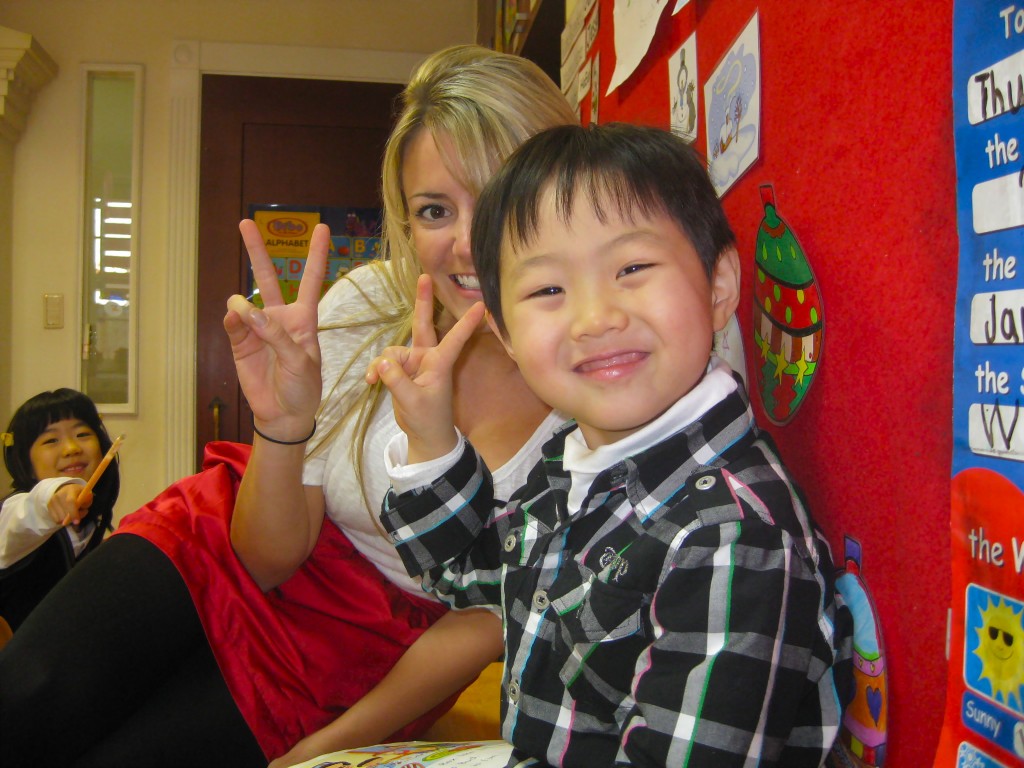
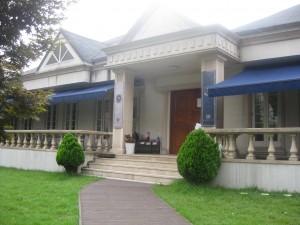
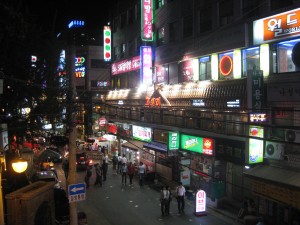
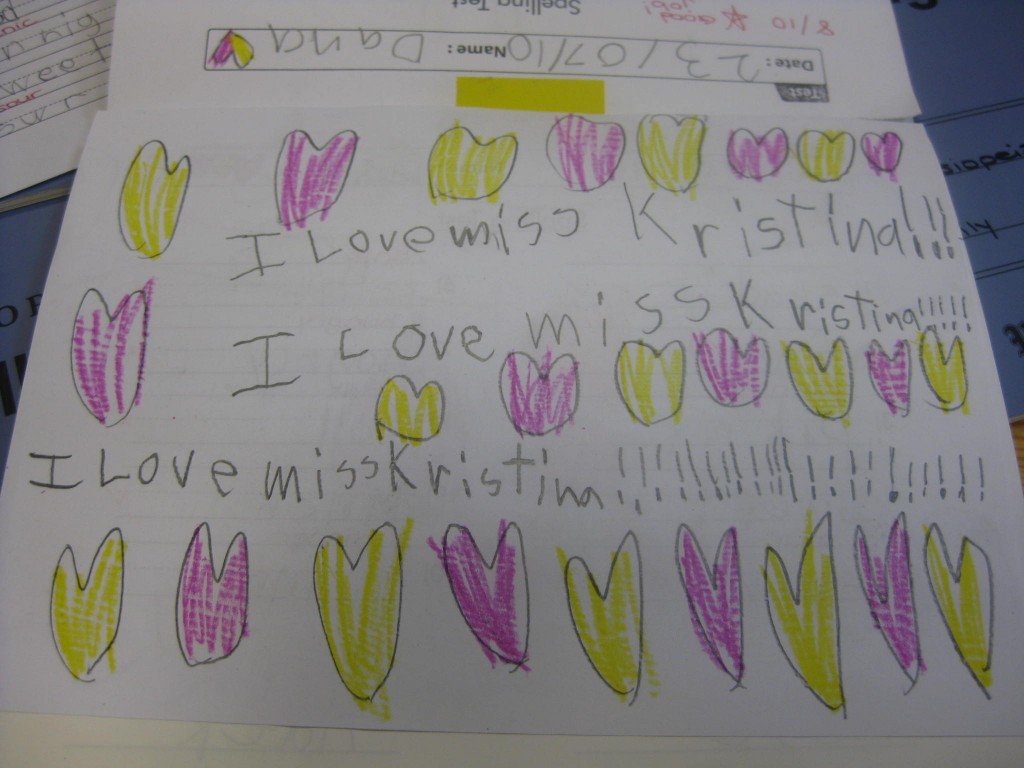
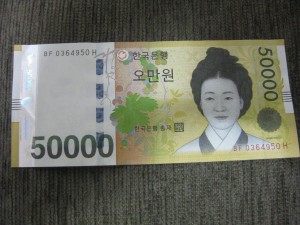
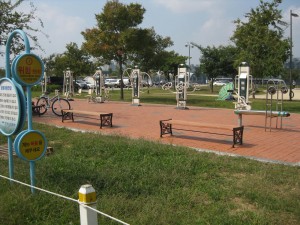
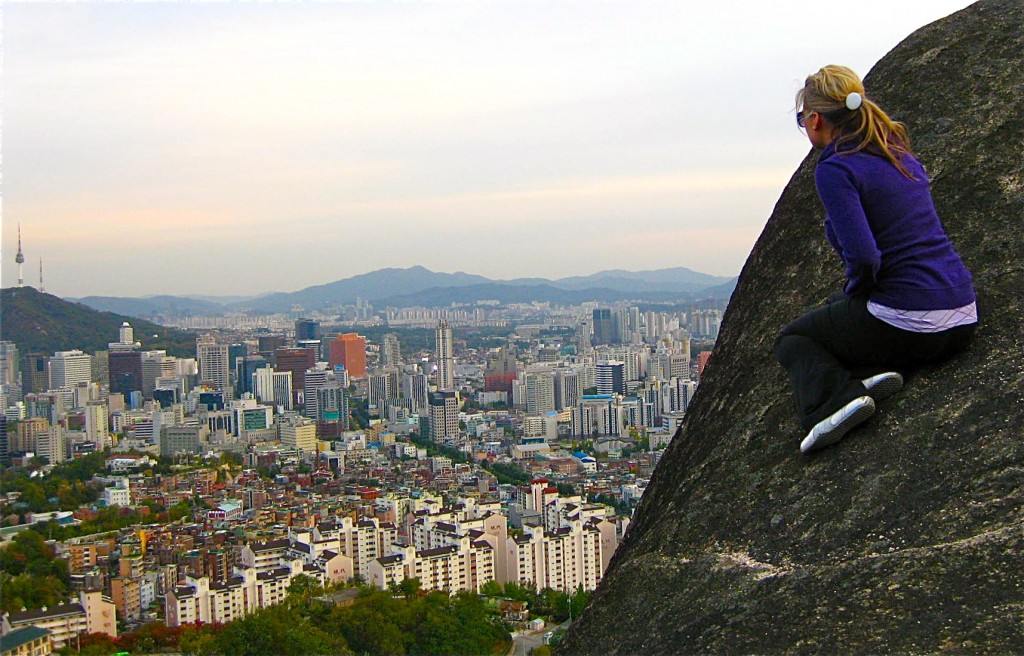
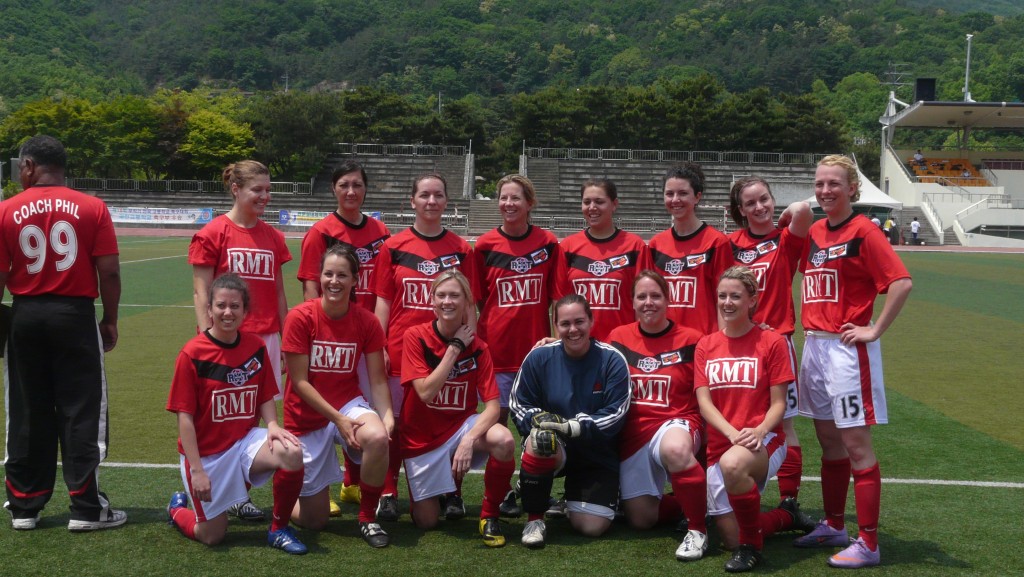
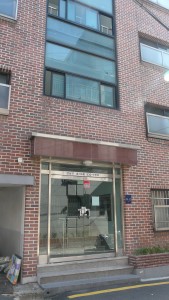
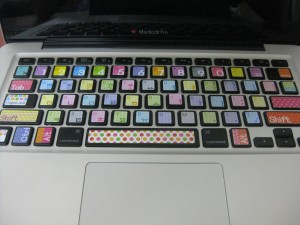
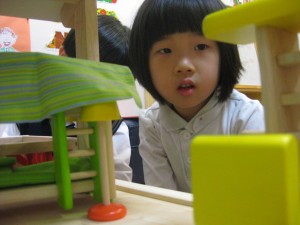
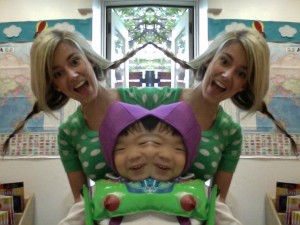
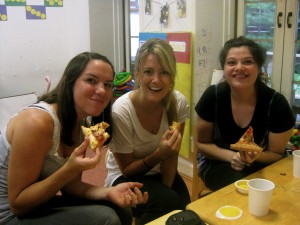
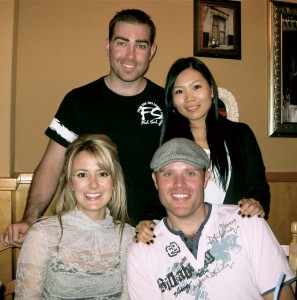
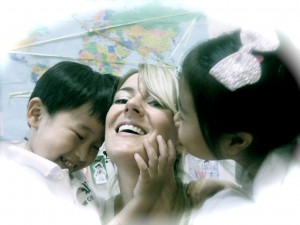
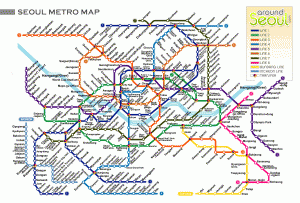
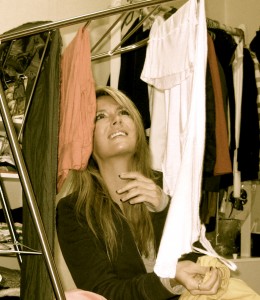
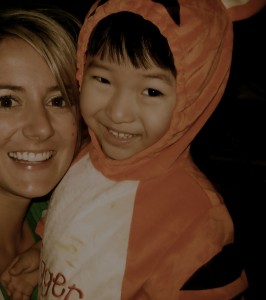


You mentioned public school a few times, but this information is really only applicable for Hagwon teaching. If you want to come to Seoul in a public school you MUST have a TEFL teaching qualification, and there are only 2 recruiting periods; February and August. In fact there are quite few differences with the public school procedures, but the experience in equally good, so everyone who is thinking about it should definitely take the plunge and come over!
Ruth recently posted… A series of unfortunate events
No kidding – that’s great info! I have a couple of friends who work in public schools and they don’t have their TEFL certs, but perhaps the rules have changed since they arrived here! Thanks so much for the info!
Great Post!
Comments:
1. I wouldn’t say that a TEFL is a waste of time or money, although it’s certainly not required for hagwons. However, you’re likely to get more money if you have one and Ruth is correct that public schools in Seoul will not consider anyone without a TEFL/TESOL. If you’re going to teach middle school to adults, I’d recommend it because you’ll learn some useful teaching/English grammar skills. But it’s not so useful if you’re teaching Kindergarten or Elementary level. You’re better off taking a babysitting class.
3. It DEFINITELY helps if you know some Korean food, numbers, and alphabet before you come. I didn’t know any and it was quite an adjustment at first. I was eating at Burger King and Quizno’s everyday because most of the Korean Restaurants don’t have English menus and even if they did, I didn’t know the cuisine. I forced myself to learn how to read in the first few months because I wanted to read the menus and items at the grocery store. You can learn to read in a few weeks, easily. As far as teaching goes, you don’t need to know any Korea unless you want to know what your students are talking about. It’s more helpful for everyday living.
6. The money is great and that’s not even counting the private lessons (although technically illegal). But as long as you’re not advertising in public or accepting money in public, you’ll be fine. At one point I was making 2.3 million in salary and 1.5 million in private lessons. You can charge about 30-50,000 per hour for those depending on who it’s for and how many students at a time.
8. 10 days doesn’t include all of the public holidays, which make for a nice opportunity to travel around Korea. For the summer and winter holidays, I’d definitely recommend an out of country trip. I’m going to go ahead and plug Thailand/SE Asia for a GREAT winter vacation! You’ll get almost 10 consecutive days from Christmas to New Year’s including weekends, so you can see a couple of destinations in Thailand or SE Asia. The weather is great during those months and there’s no where on earth like SE Asia.
9. When they tell you that you get a free apartment, it’s really misleading. They should say that you get a free dorm room because they’re much more similar to college dorm rooms than an apartment. That being said, I shared a 14×14 apartment with a 60 lb Doberman for a year and we did just fine. It will teach you to live with less and make you feel like a spoiled brat for growing up in a 2000 sq foot home.
10. If you’re a N. American TV junkie or sports junkie, I highly recommend investing in a Slingbox. You can buy one at an electronics store back home for about $200, connect it to your parents’ or friend’s cable box (on a tv they don’t use very often), and you’ll be able to stream your hometown TV onto your computer in Korea. It’s best if the cable box you have back home has DVR because you’ll need to record most of the shows/games because of the time difference. Another good option is Hulu.com or Netflix.com although you’ll need to purchase the use of an American VPN for about $8 a month because those sites aren’t available outside of the US.
12. The Korean Won fluctuates considerably depending on relations with N. Korea. Keep your eye on the exchange rate and the political situation with the North. If something bad happens between the 2 countries, the Korean Won will plummet and you’ll be waiting months for it to go back up. Plan your wire transfers home strategically when the rates are the best and keep up with the political situation.
13. Dress code varies tremendously by school. My school wouldn’t allow jeans or shorts and required guys to always wear dress pants and collared shirts. Check with your school before packing.
15. Teaching abroad is kind of like pledging a sorority or fraternity. You’ll make friends super quickly because you’re all dealing with the same hardships. Some of the best friends I’ve ever had in my life, I made in Korea and now in Thailand. I was lucky that my co-workers were awesome, but even if they suck, you can meet people from other schools that are cool. Also, try to make some close Korean friends! They can really help you out and also enable you to really experience the culture.
19. The bus in Seoul is great too, but you’ll have to be able to read and understand Korean to use it. The maps and info on buses is about 50% in English. The subway is definitely the easiest to use, but sometimes the bus routes are more convenient for where you are going (ie from Gangnam to Itaewon).
23. I hated it for the first month. Give it some time. It was by far the best thing I’ve EVER done….actually, I’m still doing it, just in Thailand now.
Best of luck to anyone taking this adventure! It will change your life!
Great list Kristina!
-Darren
Darren, wow, thank you for this! You added some really excellent points and a public school perspective which I don’t have. I agree with everything you’ve said. Especially the bus system! I love the bus and hardly ever take the subway anymore (especially since I’m living in Bundang now), but it’s a total challenge before you know any Korean. When I first got here, I was terrified of the buses, especially since there doesn’t seem to be a good website (that operates on anything other than Internet Explorer!) for them. And like you said, it’s so important to make Korean friends. The ones I’ve made have helped make my experience here totally incredible. Thanks again for your additions – well said! :)
This post almost makes me want to quit my US teaching job and come over there, stat. I say almost, because I am pretty sure my husband would frown upon it. He was good with me going away for 5 weeks this summer, but I don’t think I can get away with a year!
Claire recently posted… My 7 Links: I’m One of the Cool Kids Now
You’ll have to bring your husband with you! ;) If you’re a certified teacher in the US, you can get a job at international schools worldwide!! I’m so jealous. I’m hoping to be as qualified as you within the next couple of years! :)
I’m certified to teach in California. Do you know where I can find an international school position in Korea? Many thanks!
Oh, an international school position? I have friends that work at KIS in Bundang (just south of Seoul). They seem to love it there, but the application process is a bit nuts. They both got the job because they happened to be in Korea at the time a position opened up….. I’m not sure if all International Schools in Korea operate like this, but it’s worth looking into! I would suggest contacting the schools directly. I know there is a way in, I’m just not versed in the process personally. Good luck!! :)
Many thanks, Kristina!
I’ll look into it. :)
this is a great write up Kristina – i’ll be sending people this way when they ask about Korea. Cool country too :)
johnny recently posted… My Very Awesome Plans for Life and Tibet to Ireland by Land….
Thanks so much Johnny! Glad you enjoyed it :) It’s such a great place to live and work! Definitely recommend it to anyone :)
This is awesome, Kristina! I’m planning to go to Korea next March to learn the language and am thinking about teaching while I’m there as well. You have provided so much very useful information! Thank you! Are you still in Korea now?
Thanks Irene! I appreciate that :) You should definitely teach while you’re here – it’s so rewarding! Would you come to Seoul?
To answer your question, yes, I’m still in Korea… for one more week! I can’t believe how fast the time flies. I’m sure I’ll be back before long though ;)
Aww, too bad you’re leaving so soon! Where will you travel to next?
I know, I’m sad it’s coming to an end.. and just as the weather is starting to get nice! ;) I’m heading to England on Sunday, and then I’ll be moving to Turkey mid-September. :) A new country, a new adventure! Thanks for your comments; Oh, and I see we’ve connected on twitter now, awesome :) x
Hi Kristina,
Thank you so much for the information you provided. I am finishing all of my paperwork and will hopefully be out there by the end of September. I have been hesitant on traveling there because it is a huge change and other than living in Canada for several years before moving back to the states I haven’t traveled anywhere that far before. This site has been a huge help in making my decision easier and I am looking forward to the new challenge.
Oh, that’s so exciting! End of September will be here so in a heartbeat – glad you found the information useful, and happy I could help make your decision easier! You’re going to love it here…. for all the quirks, Korea is pretty amazing. Wishing you a safe and easy transition! Thanks for the comment, and happy adventuring :)
A couple things–since you’ve been around.
An unlocked iPhone WILL work.
Don’t be scared of NOT being in Seoul. The rural areas of the country, though not as modern as Seoul, are not necessarily backwards, hole-in-the-wall areas. This is still a 1st world country, and there’s still the WWW. Definitely some uniquely interesting experiences out there.
I’ll def. bookmark this and be sending it to my friends as they inquire about teaching in Korea. Great post!
Thanks Nate! My iPhone is unlocked and it works everywhere I’ve been previous to Korea… but nobody here can make it work. I need to know your secret!! :)
I fully agree with you – def don’t be afraid to live somewhere outside of Seoul/Busan. The rural areas are beautiful – and the transportation system in this country makes them very accessible, so getting to/from a big city won’t be a problem.
Thanks for your comment!
I am Pakistani and looking for job in South Korea because south korean little youngs are very keen in learning.then learner is keen to learn something he is learnt.
South korea is famous country in the world and also peaceful. I have aexperience in teaching in english
If you desire to grow your know-how only keep visiting this site and be updated with the hottest
information posted here.
change recently posted… change
Thanks for any other magnificent article. Where else could anybody
get that kind of information in such an ideal means of writing?
I have a presentation next week, and I’m on the search for such info.
best email list recently posted… best email list
Hi there, just became aware of your blog through Google, and found that it’s truly informative. I am gonna watch out for brussels. I’ll appreciate if you continue this in future. A lot of people will be benefited from your writing. Cheers!|
This site really has all of the information I wanted about this subject and
didn’t know who to ask.
Trevor recently posted… Trevor
This is like the ultimate post for newbies. Nice work! Love the part about how it doesn’t matter if you’ve never taught a day in your life. It’s all about the young and beautiful here in Korea.